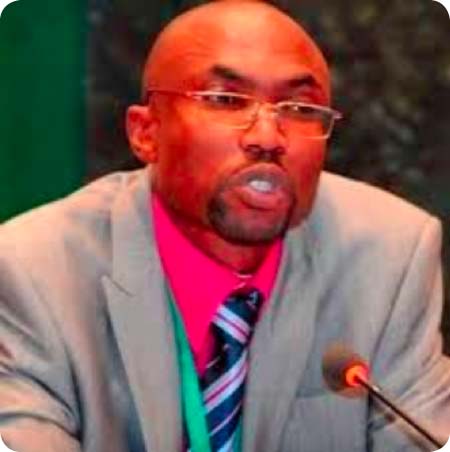
The aim of the project is to assess the vulnerability of protected areas in West Africa and impact of climate change in view of enhancing resilience by developing strategies and tools to improve effectiveness management in climate change.
The JEF-fund project executed by UNEP-WCMC in the partnership with (IUCN PACO) has been in operation since 2010.
Speaking at the opening ceremony, the Minister of Environment, Water Resources and Climate Change, Pa Ousman Jarju, said The Gambia as a country has shown real commitment to the protection of the environment as a key component of sustainable development.
“In line with our Vision 2020 and other sectoral policies, such as the Gambia Environment Action Plan (GEAP), the Government of the Gambia continues to create an enabling environment to address climate change and natural resources management,” he said.
According to him, the project is trans-boundary in nature, and it focused on Niumi Natioal Park and Saloum Delta National Park (Gambia and Senegal) in which a trans-boundary management plan integrating climate change is maintained.
UNEP-WCMC is the executing agency and IUCN PACO is the main regional partner, providing guidance and support for the implementation of activities at the regional and national levels, including pilot site activities, he said.
Jarju added that the project covers five core countries in West Africa, namely The Gambia, Mail, Sierra Leone, Chad and Togo.
Bukina Faso, Cote Divoire and Ghana are also benefiting from certain components of the project, he further stated.
Minister Jarju said the training session was “in line with the project’s objective to build the capacity of our people in various sectors, thus enabling them to improve their skills on systemic conservation planning, which would positively correlate with the quality of protection.”
“It is indisputable that conservation is the key in sustainable development, especially in our environment that has not been constantly and properly managed,” Minister said.
He further stated that it would interest them to know that research has shown that more than 13 percent of the global land surface is designated as “protected area.”
Although, he added, much variation exists in the quality of protection provided.
“We are aware that the West African region contains a high level of biodiversity and endemic species across multiple areas. This region is also projected to experience extreme climate change in the future,” he stated.
He said the government of The Gambia was fully aware of the achievements that PARCC project registered in the past year, and these achievements include preparation of a report on projected impacts of climate change on biodiversity in West Africa Protected Area in which impact on reptiles, birds, mammal has been highlighted.
He said the project is currently working on different pilot activities at Niumi Natioanl Park and Saloum Delta, adding that the project has also developed a trans-boundary plan in the Niumi Saloum Biosphere.
Mrs Ndey Bakurin, the Executive Director of the NEA, said the PARCC West Africa, officially known as evolution of protected area systems with regard to climate change in the West African Region, is a GEF project focusing on the issues of climate change and protected areas being managed by UNEP’s world conservation monitoring center, UNEP-WCMC, which has developed the project proposal and secured co-financing.
She said the implementation of the project started in 2010 and would run until the end of 2015, and the total budget is USD 15.6million, which consists of USD 3.5million of GEF funding and partner co-financing of USD 12.1million.





